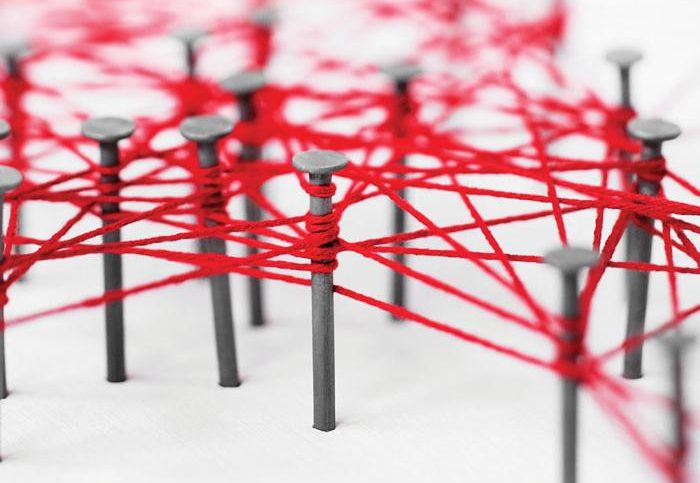by Abdulmohsen Al Mayyas
(music plays) “If you got Wasta to back you up put your hands up! If you know someone in high places put your hands up! This is the track they might as well be playing at every government entity and, in many cases, private institutions here in Kuwait. “Do you know someone?” is a question that anyone and everyone at one point was forced to ask when dealing with an official entity. And if you don’t know someone who knows someone, well you’re kind of screwed. What happened to proper procedure? Pshh, ain’t nobody got time for that!
Literally, the time it takes to follow protocol and regular procedure here in Kuwait is as unpredictable as the construction on our roads. It could take weeks, months or even years, and even after you’ve reached the person in charge they will bounce around like a beach ball with a smile on their faces until you’re out of breath and out of options. Weak and cornered you pull out your cell phone hesitant but in dire need. You make that phone call to that one guy that always has a guy somewhere and you ask him that same question, “do you know someone?”
At first it’s shameful, but you later realize its part of the culture. “Baseeta Hajji” (The Kuwaiti equivalent of “it’s easy dude”) they say. You stop worrying, only thinking of your own self-interest at this point. You say, “Everyone else is doing it,” which somehow dignifies the act of accessing an unethical form of assistance that is no better than a bribe or blackmail. The invisible villain lurks, and before you know it the evil consumes you, you’re a solid member, a part of a movement, a Wasta-fari…
What is a Wasta-fari you may ask? The Wasta-farian Movement, or Wasta, is a movement that arose in the 1980s and most prominently the 90s in Kuwait and the Gulf region. “Wasta” is an Arabic word that loosely translates into Nepotism or ‘who you know’. Nepotism is favoritism granted to relatives or friends regardless of merit.
Wasta refers to using one’s connections and/or influence to get things done, including government transactions such as the quick renewal of a passport, waiving of traffic fines, and getting hired for or promoted in a job or what is informally spoken of in English as “pull” from connections. Its adherents worship and rely on ‘the connection’ as the pure solution to their issues what ever they may be. The outcome, the devastating result, is portrayed in the story that follows. Keep in mind, all events that proceed are of a true nature and are based on a true story. Our character is Abu Ahmad (a significant public figure). He will take it from here.
“Last Ramadan my daughter fell unconscious. She wasn’t breathing. It was at that moment I truly felt that the difference between life and death was merely seconds. I called number after number. No response. I was bitterly forced at this point to mention my name in the hopes of someone picking up on it and deal with my situation differently.”
Here, the value of a human being is based on how many influential people have his back. A hidden backstage, controlled by men flowing through its doors in the feud for a seat. Meanwhile, in the front, the true battle is between those in need and the strong and powerful. In a country where they display justice as a beautiful canvas behind their chairs and signs contracts and run transactions based on a phone call or the presence of an important figure, you can only seek hope in saying the 4 magical words, “Do you know someone?”
In education, where the largest sum of the population is found, they find it acceptable that to raise our offspring under the impression that they will not receive a seat in a good school without seeking the words, “Do you know someone?”
You may scream and shout as you stand respectfully in the endless lines at the counter at a ministry. When you discover there is another door from which smiles are dispersed, the smell of Bukhour is evident, and the repetition of a single phrase, “Consider it done.”
In an environment where they place the least competent behind their desks, based on small paper note. While denying another who spent a lifetime climbing the ladder from the bottom, digging through stone to reach the top— it is inevitable that this ladder would soon crumble. In an environment where they throw your basic needs behind personal dreams, you are forced to deal with a term such as, “Do you know someone?”
On a wide headline: “So and so college opens its doors for registration,” as potential students flow in from everywhere. And in the end the few chairs left are reserved for managers in high places and low. As for the one debilitated by the drive, the traffic, the bureaucracy, the paperwork, and the time wasted must now begin their anguish again searching for a new turf and a new hope.
Phones filled with name IDs that identify the caller’s job and position in more detail than their name. Soon enough the phone becomes valued by those connections and those IDs. Do you know someone? Because it’s been years and I’ve been in the same position without a promotion, while others behind me made me but a bridge to cross. Do you know someone that will appraise the years I spent to get my degree? And today it’s nothing more than a painful reminder framed on the wall.
Do you know someone who can move my papers in court? So I can be rid of this torment that has now nested in my path? Talking about paths, do you know someone that will bury the poor state of our dark neighborhood saturated with potholes overflowing with water? Do you know someone who can let me enter to see his Excellency?
Do you someone that can be rid of the dust on top of a folder thrown in the archives so that perhaps it will bring rise to the possibility of me getting a home for my family? Do you know someone who can transform my dream into reality, and not my reality into a dream? Do you have a solution, a path, which can take me to a place that I would no longer need to “know someone”?
So dear reader, the question is, how do you fight such an invisible villain? It’s a villain that can be only portrayed by our own actions. It does not have a true physical form. It is defined and grows in strength with every phone call made and every name thrown and business card flashed. And we are all accessories to this evil as long as we choose to be a factor in maintaining its presence.
Every time you seek Wasta, you’ve taken someone else’s much more deserved right to get the same. When you get a chance to help someone out, make sure it is for the right reasons. Or maybe you should help everyone out just the same. The idea, dear reader, is that we are all part of Abu Ahmad’s story. We are the parents, the families, the students, the doctors, the ones sitting behind those desks, the paralegal, the judge, the engineers, constructions workers, and the clerk at the archives. It’s really up to us to decide whether to be the hero or support the villain.








